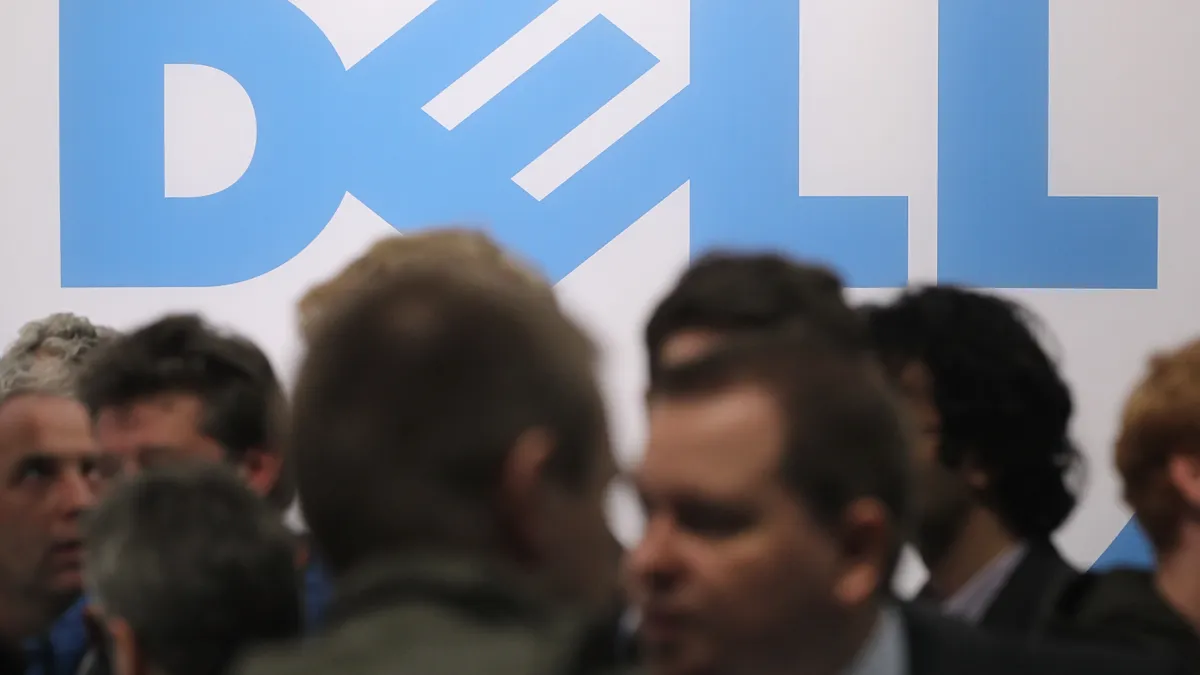After nearly a year of speculation and endless coverage about the $62 billion merger between Dell and EMC Corp., Dell Technologies debuted Wednesday in what the companies are referring to as "a new dawn."
The deal creates the largest privately held tech company in the world, which is worth $74 billion and serves 98% of Fortune 500 companies, according to the announcement.
"We are at the dawn of the next industrial revolution. Our world is becoming more intelligent and more connected by the minute, and ultimately will become intertwined with a vast Internet of Things, paving the way for our customers to do incredible things," said Michael Dell, chairman and CEO of Dell Technologies, in a statement. "This is why we created Dell Technologies. We have the products, services, talent and global scale to be a catalyst for change and guide customers, large and small, on their digital journey."
The mega deal has garnered so much attention, in part, because it’s one of the largest tech mergers in history, creating a company with broad market penetration, from personal computing to enterprise technology.
So, what does it mean for CIOs?
Well, among other things, Dell Technologies will be one of the largest enterprise tech providers in the industry. Take just the IT cloud infrastructure market, for example. The market — defined as servers, enterprise storage and Ethernet switches and used to help companies deploy in cloud environments — is expected to reach $37.2 billion in 2016, according to IDC analysis.
In 2015, that same market was worth $29 billion and led by Hewlett Packard Enterprise, which accounted for 15.7% of the market share, followed by Dell (10.6%), Cisco (9.6%) and EMC (7.6%).
Though HPE led the pack, when taken together Dell and EMC accounted for 18.2% of the IT cloud infrastructure market. Now that the company will operate as one under a single, defined strategy, Dell Technologies is poised to have a heavy presence in enterprises across sectors.
The company also has the potential to maintain a tight grip on the enterprise storage systems market, where EMC already accounts for the lion’s share of the $37.1 billion market, according to IDC data. Though that market has declined with the rise of cloud computing, companies are still choosing to host at least some of their own data.
In 2015, EMC held 19.2% of the enterprise storage market, followed by HPE with 15.5% and Dell with 9.7%. Taken together, EMC and Dell account for 28.9% of the market.
It’s all about the subsidiaries
With the merger comes a bevy of subsidiary companies wrapped into the deal, raising the stakes for potential vast market penetration. The new Dell Technologies will have a near stranglehold on the enterprise technology market, with few companies engaging enterprise technology services that are outside of Dell’s purview.
Wrapped up in EMC, is the successful cloud computing provider, VMware. Though it has some catching up to do before it can dominate the IaaS market like its competitors Amazon Web Services, Google and Microsoft, VMware has made a name for itself in the hybrid cloud and with virtualization technology, according to Gartner.
Dell-owned SecureWorks also shows promise for the company. Though it raised significantly less than the $181 million it had hoped for during its April IPO, it is still a prominent name in the growing cybersecurity industry.
Also included family of Dell Technologies are Pivotal, RSA and Virtustream. All those organizations, including SecureWorks and VMware, will operate as independant organizations with their own ecosystems, according to an announcement.
While both companies have worked to streamline pre-merger, with Dell divesting both software and services units, some are concerned about the potential for R&D with such a large company, particularly one that has put so much capital into the deal.
One concern about holding subsidiary companies is that Dell will not have the focus required to maintain control in the market. Whereas its competitor HP broke into smaller pieces to remain agile in the market, Dell and EMC are creating a conglomerate that could falter as the technology landscape shifts.
HPE CEO Meg Whitman has pointed toward lack of capital for R&D investment because of the scale of the deal. Meanwhile, Dell CEO Michael Dell has promised to invest $4.5 billion in R&D in the coming year, a number nearly twice as much as HPE did last year.














